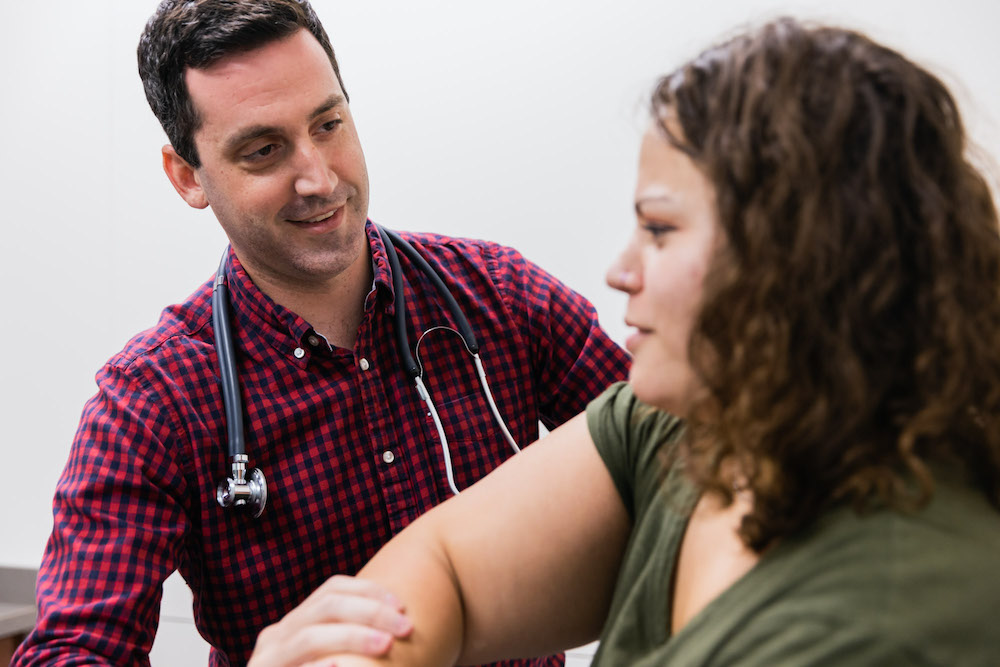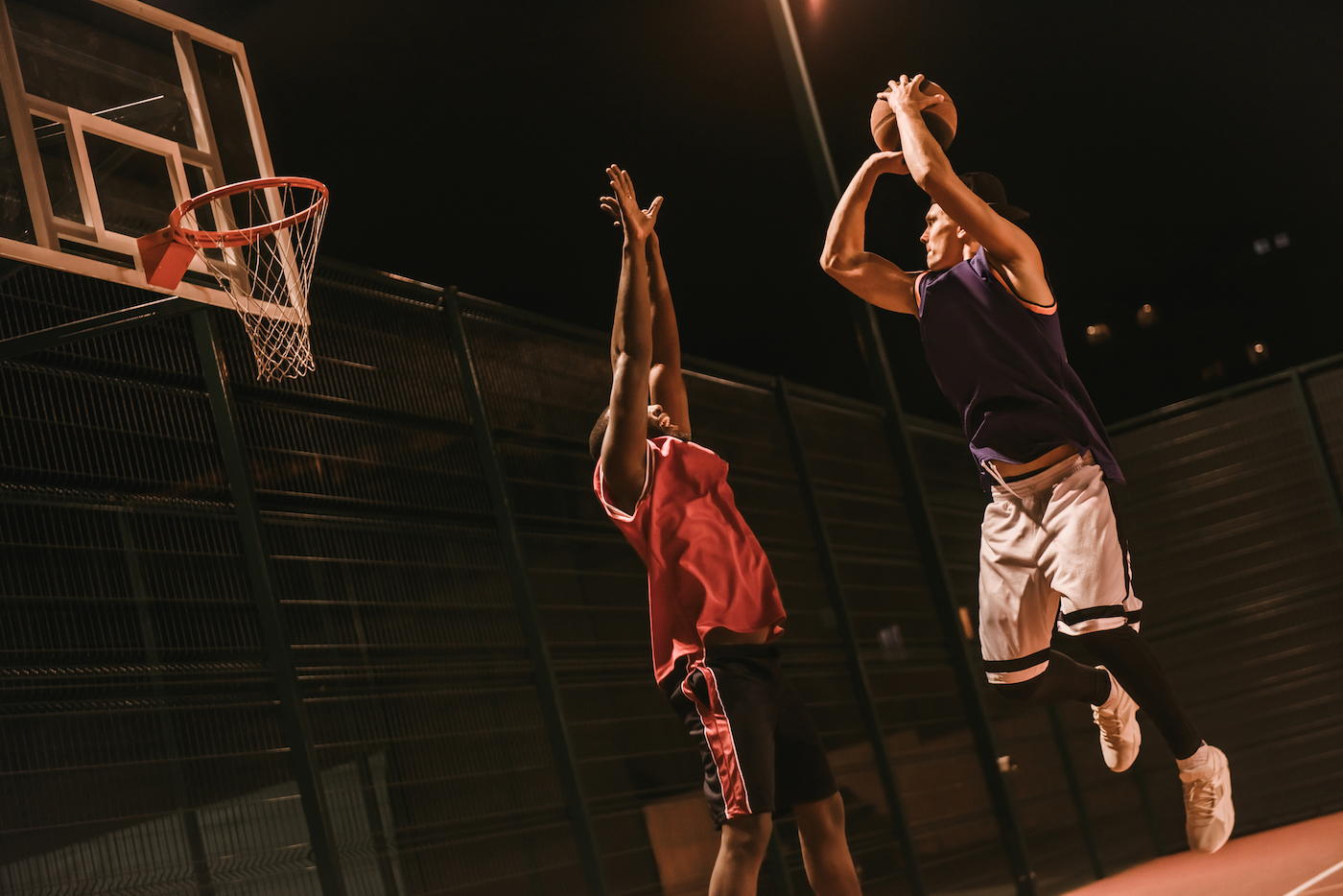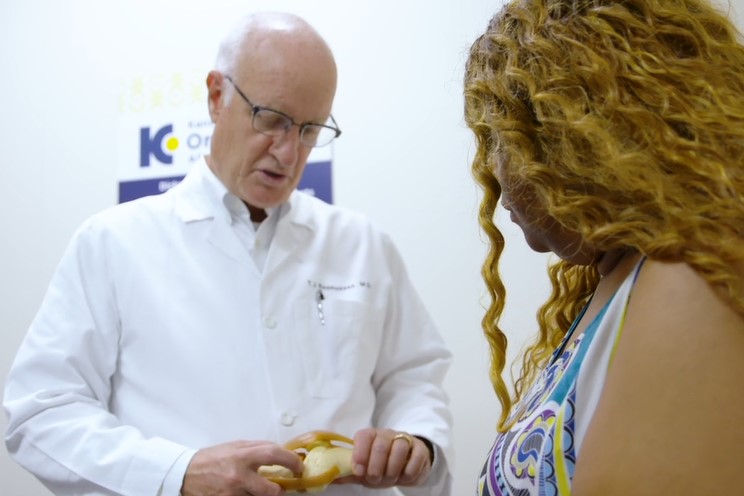
Whether you’re a competitive athlete or a weekend jogger, it’s likely that you’ll suffer from an injury at some point in time. An estimated 8.6 million sports and recreation-related injuries occur every year.
When injuries happen, it’s important to seek timely treatment. Untreated injuries can lead to worsening symptoms and long-term complications.
Kansas City Orthopedic Alliance is the Midwest’s premier provider of orthopedic care. As the largest orthopedic practice in Kansas City, we treat thousands of sports injuries each year across our 5 locations—Overland Park, Leawood, Belton, Kansas City, and Blue Springs. With the latest technology, our sports medicine providers can evaluate, diagnose, and treat nearly any type of activity-related injury.
If you’re ready to get help for your pain, schedule an appointment with KCOA. Our team will set you up with a specialist to treat your injury and help you safely return to your favorite activities.
Keep reading to learn about orthopedic sports medicine in Kansas City!
Who do KCOA orthopedic sports medicine physicians treat?
Sports medicine can be a misleading term. While it does encompass sports injuries, you don’t have to be an athlete to receive treatment from sports medicine doctors in Kansas City. Many of the injuries we treat are result of day-to-day activities.
We treat the everyday person
Many of our patients experience injuries from activities like work, personal hobbies, and household tasks. You don’t need to be an athlete or live an active lifestyle to see a sports medicine physician. Painters, plumbers, desk workers, and other individuals that develop overuse injuries come to our sports medicine clinic in Kansas City.
We treat professional athletes
Our sports medicine physicians work with professional athletes to prevent injury and treat injuries when they occur. Our providers have served as physicians to several professional sports teams—including the Kansas City Royals, Sporting KC, and the Kansas City Ballet.
We treat school-aged and collegiate athletes
Our providers partner with local high schools and universities to treat competitors of all ages. In addition, we work with athletic trainers and physical therapists to build “return to play” programs that help athletes safely return to their sport.
If you are looking for a sports injury specialist in Kansas City to help keep your athlete healthy this season, contact KCOA today.
Why should I see a sports medicine doctor?
If you have an injury resulting from activity, it’s important to find an expert to help you safely return to play and prevent further injury. Sports medicine doctors are experts in treating injuries of your musculoskeletal system.
After residency, sports medicine providers can pursue additional training through a fellowship. In a fellowship, physicians spend a year training in a more specialized area of sports medicine, such as the shoulder/elbow, the hip/knee, or the foot/ankle. These providers gain advanced knowledge and additional experience to improve their skills.
KCOA is proud to have many fellowship-trained physicians on our team. If you are looking for a sports doctor in Kansas City, these experienced providers can help:
What injuries can be treated with orthopedic sports Medicine?
In Kansas City, our providers see a wide range of injuries across our 6 locations. Below, we’ll break down some of the most common injuries we treat.
Shoulder dislocation
The shoulder is the most commonly dislocated joint in the body. Shoulder dislocation often occurs in contact sports as the result of impact or trauma.
A recent study found that high school and collegiate athletes most commonly experience traumatic shoulder dislocation in basketball, football, soccer, baseball, and weightlifting.

How to prevent shoulder dislocations
The most effective way to prevent dislocations during sports is to wear proper fitting protective equipment and padding. Protective equipment should be worn at all times, regardless of whether it’s a game or practice.
It’s important to listen to your body if you start to feel pain. Playing through the pain can cause further damage and result in more time sitting on the sidelines in the long-run. You can also reduce your risk of injury with proper stretching, warm-ups, and cool-downs.
Treatments for shoulder dislocations
If you have a shoulder dislocation, our sports medicine team will customize a treatment plan based on the type and severity of your injury. Treatment options for shoulder dislocations can include:
- Ice and rest
- Activity modification
- Immobilization
- Anti-inflammatory medication
- Exercises or physical therapy
- Surgery to repair torn ligaments or bone fractures if necessary
Hip labral tear
The labrum is a cartilage that cushions the hip joint and keeps the thigh bone (femur) secure in the hip socket. Hip labral tears commonly occur from trauma during contact sports, but they can also result from repetitive motions (like long-distance running.)
Common sports that cause hip labral tears include:
- Ballet
- Golf
- Football
- Hockey
- Soccer
- Running and other aerobic exercise
How to prevent hip labral tears
The best way to prevent hip labral tears is with proper stretching and warm-ups. Strengthening the surrounding muscles can also reduce your risk of injury. If you start to feel pain, it’s important to stop the activity and give your body time to rest.
Treatments for hip labral tears
If you think you have a hip labral tear, visit our sports injury clinic to see a sports medicine physician. Your treatment options can include:
- Rest and activity modification
- Anti-inflammatory medication
- Steroid injections
- Physical therapy
- Surgery in severe cases
Rotator cuff tear
Rotator cuff tears commonly occur in sports with overhead motions and repetitive arm movements. Tears can also happen from an acute injury to the shoulder during contact sports.
Our physicians frequently see rotator cuff tears in athletes who participate in the following sports:
- Baseball
- Tennis
- Rowing
- Weightlifting
- Swimming
How to prevent rotator cuff tears
An effective way to prevent rotator cuff tears during sports is to strengthen the muscles of the shoulders. If you feel any shoulder pain during your activity, it’s important to stop and visit a provider of orthopedic sports medicine in Kansas City to prevent further injury.
Treatments for rotator cuff tears
Orthopedic sports medicine in Kansas City can help you recover from rotator cuff tears. After an evaluation, your provider will create a treatment plan to heal your injury. This can include:
- Ice and rest
- Physical therapy
- Steroid injections
- Surgery for severe injuries
Meniscus tear
There are two cartilages in the knee that prevent your bones from rubbing against each other and provide stability to the knee joint. These two cushions are called the menisci. Meniscus injuries often occur in sports where athletes run, jump, pivot, cut or twist.
Athletes who seek meniscus injury management in Kansas City commonly play these sports:
- Football
- Soccer
- Gymnastics
- Basketball
- Wrestling
How to prevent meniscus tears
Stretching, warming up, and strengthening exercises can help prevent meniscus injuries. If you start to feel pain in your knee, it’s important to stop the activity and seek treatment if your pain persists.
Treatments for meniscus tears
If you have a meniscus tear, treatment will depend on the location and severity of the tear. The following treatments can be part of your care plan:
- Rest and ice
- Anti-inflammatory medications
- Physical therapy
- Stabilization
- Meniscus surgery for severe injury
ACL tear
The ACL is a ligament in your knee that connects the thigh bone (femur) to the shin bone (tibia). ACL tears commonly occur during sports where athletes quickly jump, pivot, and change directions. Sports with a high occurrence of ACL tears include:
- Football
- Basketball
- Lacosse
- Soccer
- Skiing
How to prevent ACL tears
Strengthening your glutes, hamstrings, quads, and core muscles can help reduce your risk of ACL injuries. Properly warming up and stretching before activities can also help prevent ACL tears.
Treatments for ACL tears
If you think you tore your ACL during a game, it’s important to seek treatment from a provider of orthopedic sports medicine in Kansas City. At KCOA, we personalize each care plan to your specific injury and can help you return to play with the following treatments:
- Rest and ice
- Anti-inflammatory medications
- Physical therapy
- ACL reconstruction
Up next: Do I Need a Referral to See a Sports Medicine Doctor in Kansas City?
Visit KCOA for orthopedic sports medicine in Kansas City.
At Kansas City Orthopedic Alliance, we’re dedicated to creating a superior patient experience for all. If you’re suffering from an injury, our team will work with you to ensure the best possible outcomes. We’ve helped thousands of patients treat their pain, restore their function, and increase their quality of life.
For a thorough evaluation, call us at (913) 319-7600 or schedule an appointment today. If you’re struggling with pain but don’t know where to start, use our symptom tracker for treatment recommendations.

